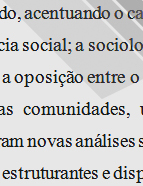

................................
In terms of culture and education, nineteenth-century institutional historiography also had its followers. Classified by some as the “century of schools”, there is a wealth of material on educational issues, with numerous monographs devoted to colleges, secondary schools, universities and their faculties, but the political and pedagogical aspects far outweigh the institutional approaches. Those who sought, despite everything, to cover educational institutions as a whole were António da Costa, Adolfo Coelho and, particularly, José Silvestre Ribeiro. Let us look at some of these historians.
Teófilo Braga (1843/1924), in his História da Universidade de Coimbra nas suas relações com a Instrução Pública Portuguesa (1892-1902, 4 vols.), places the emergence of the University in the context of medieval European cultural development and divides its evolution into four periods (13th to 15th centuries, 16th and 17th centuries, and 18th and 19th centuries): “However, this division cannot be characterised solely by the internal life or transformation of the literary establishment, because the University, as a form of teaching and pedagogical institution at the end of the Middle Ages, is linked to the entire course of modern European history.”
It covers practically all aspects of the organisation of the University (statutes, chairs, masters and programmes). The sources used are mainly bibliographical, documents from the UC archives, letters and documents published in the Bibliographic and Legislative Bulletins.
Another case is Joaquim Augusto Simões de Carvalho (1821-1902) with his Memoria Historica da Faculdade de Philosophia (1872), in which he reviews the history of science, summarises the historical periods up to the Pombal era and concludes his analysis of the historical evolution of the university as an institution, focusing in particular on the Faculdade de Filosofia [School of Philosophy]. He uses documents from the UC archives, minutes, reports, records and legislative sources, although he never refers to his sources.
This work is financed by national funds through FCT - Foundation for Science and Technology, I.P, in the scope of the projects UIDB/04311/2020 and UIDP/04311/2020.
